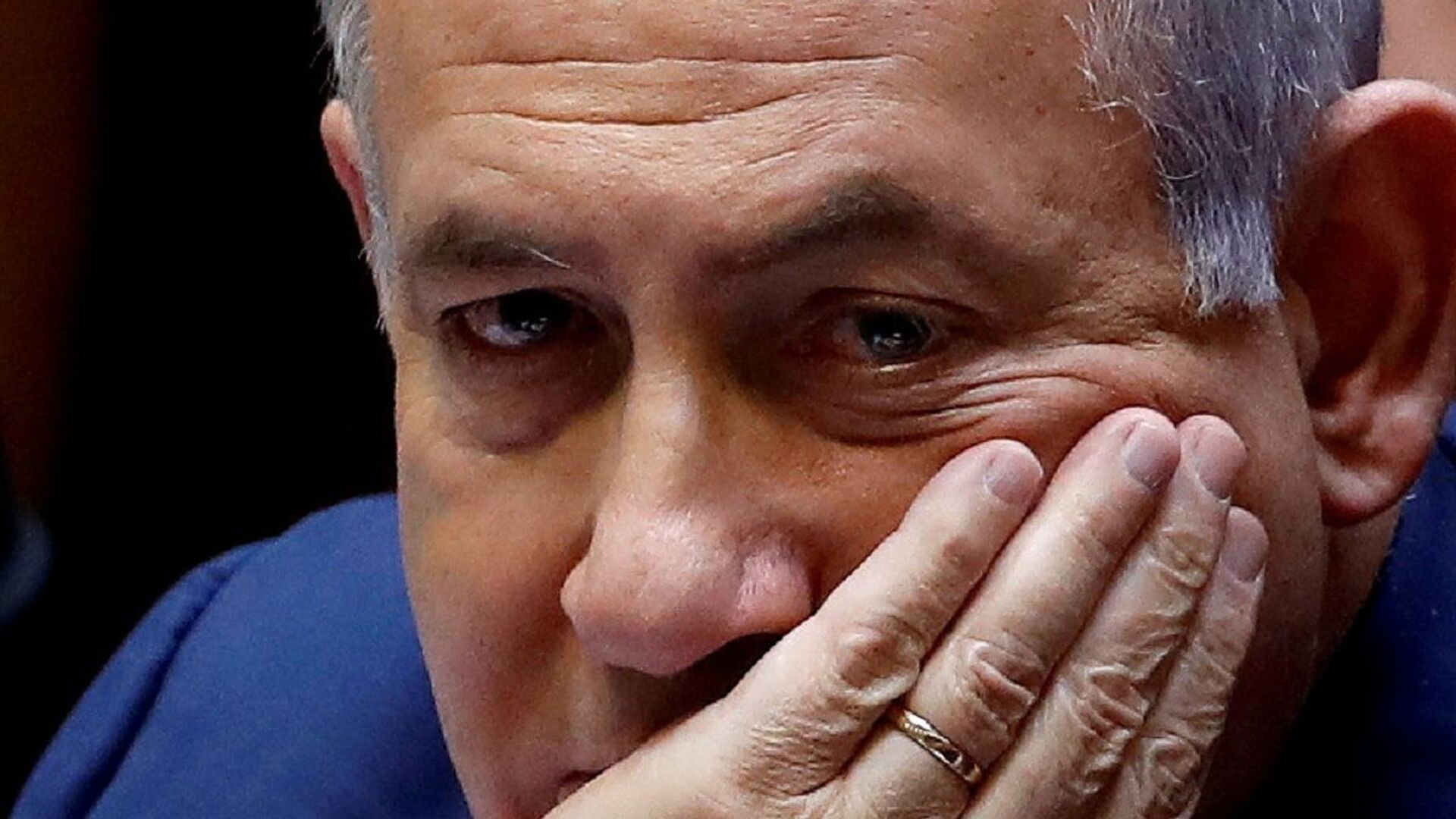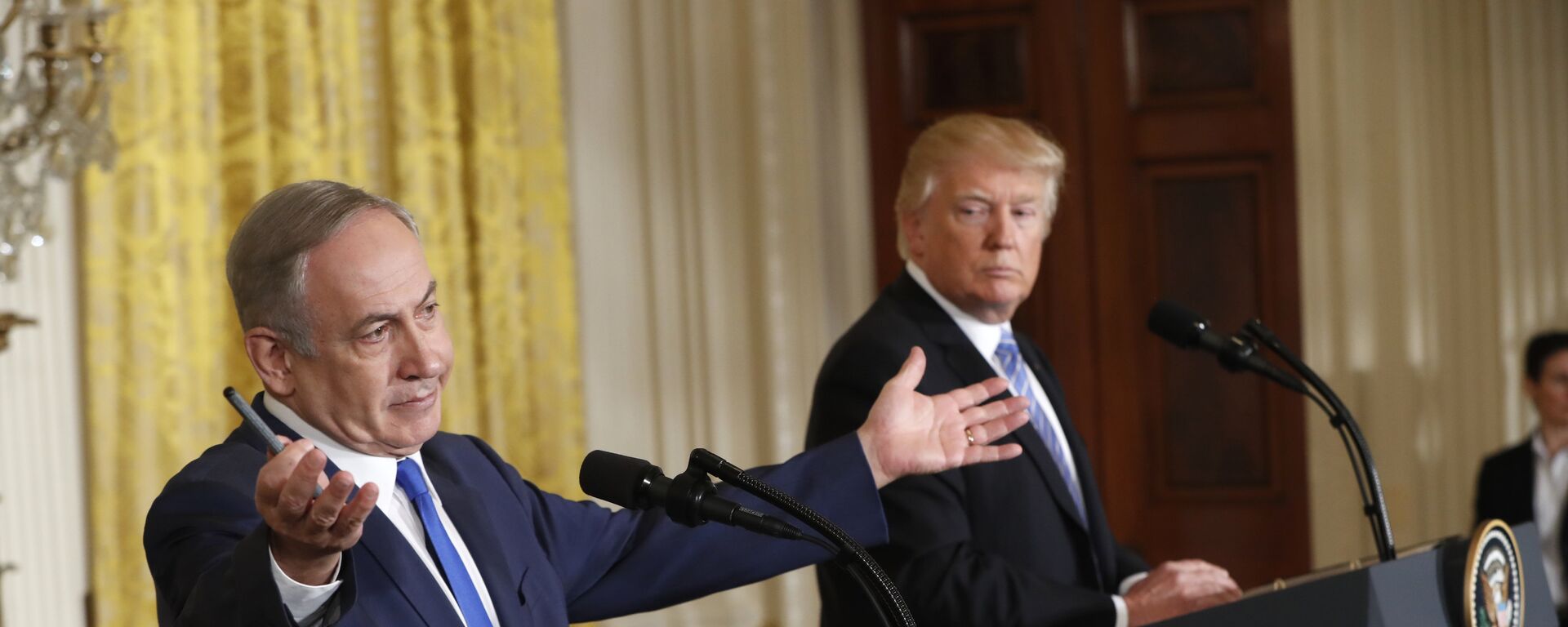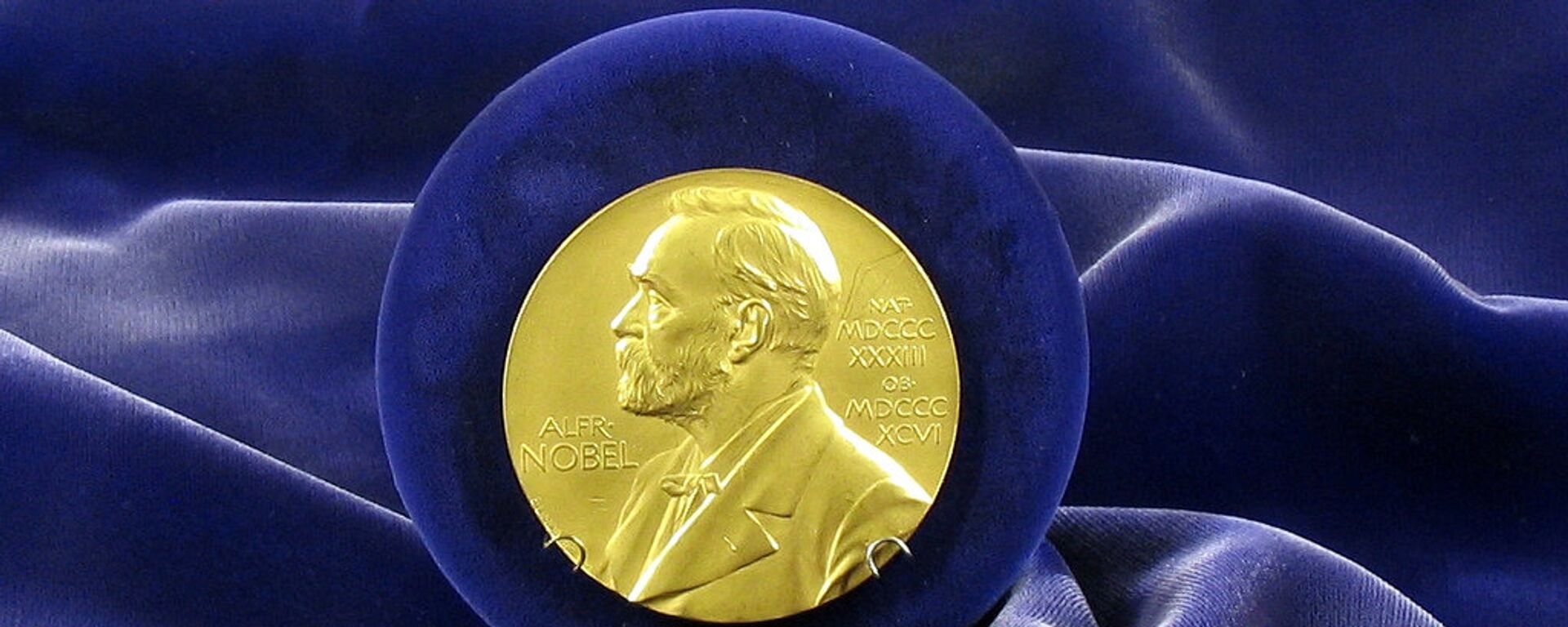Israeli Politicians and Media Tend to Ignore Netanyahu's Achievements, Here's Why
08:08 GMT 14.12.2021 (Updated: 17:24 GMT 15.01.2023)

© REUTERS / Ronen Zvulun
Subscribe
The former PM was the mastermind behind the historic Abraham Accords with the UAE and Bahrain. He was the one who pioneered the coronavirus vaccines in Israel and played a pivotal role in providing the country with an underground security fence around the Gaza Strip aimed at preventing attacks by Hamas militants.
On Monday, Israeli Prime Minister Naftali Bennett completed his official two-day visit to the United Arab Emirates, the third Muslim state to normalise relations with Israel.
The prime minister’s visit, which included a four-hour meeting with Abu Dhabi Crown Prince Mohamed Bin Zayed Al Nahyan, has been branded as "historic", and the local media covered it extensively, praising Bennett for taking the relations with the country to a whole new level.
Forgotten and Overlooked
But the mastermind of the deal that normalised ties between Israel and the UAE, the man, who pushed the pact forward and the one who signed the agreement -- former Prime Minister Benjamin Netanyahu -- has been largely forgotten. The media and Israeli politicians have been trying to diminish his achievement.
Aviv Bushinsky, former media adviser to Netanyahu, says politicians' approach can be easily explained.
"Netanyahu is still perceived as a rival. He is not dead meat. He can still become a PM and that makes them worried".
According to a recent survey, if elections were held today, Netanyahu's Likud party would get 34 out of 120 seats in the Israeli parliament, four spots more than what it received in the last round of polls that took place in March 2020.
A different media survey revealed that most Israelis still consider Netanyahu as the most suitable candidate for the position of the prime minister, by far surpassing such politicians as Bennett and his coalition partner Yair Lapid.
Media as an Enemy?
However, politics is far from the only reason for politicians and the media to fail to acknowledge the achievements of Netanyahu: Bushinsky says another factor that has contributed to their attitude lies in the behaviour of the ex-prime minister himself.
Shortly after the signing of the Abraham Accords with the UAE and Bahrain in September 2020, Netanyahu repeatedly tried to arrange an official visit to the Gulf, but external factors hampered those attempts.
He also directed his ministers not to travel to the Gulf nation, primarily because he wanted to be the first to do so, and because he supposedly wanted to get all the glory for himself.
"Over the years, he has become very selfish. He didn't want to share the glory with others. Now, everyone wants to cut that ribbon at his expense", Bushinsky says.
Israeli media share this sentiment towards Netanyahu and his family, thinks Bushinsky. They enjoy seeing him suffering and like to crack jokes in his direction.
That attitude finds its roots in the 1990s. Back then, the media accused Netanyahu of incitment against then Prime Minister Yitzhak Rabin, something that allegedly led to his assassination.
Then they blamed him for the burial of the peace process with the Palestinians and for the worsening Israel's position on the global arena.
"It has also become very personal between the media and Netanyahu. The former hates him because he and his son [Yair] tend to call some of Israel’s news channels as Al Jazeera, or a number one enemy. Netanyahu is vocal and noisy. The outlets, in their turn, fire back and refuse to praise him for anything he has done".
Such was the case with the Abraham Accords, with the fact that Israel was the first to vaccinate its citizens against the coronavirus pandemic, and with the new security fence that surrounds the Gaza Strip that aims at preventing Hamas militants from attacking the Jewish state.

'What the Hell Was That?': Trump Was Furious With Bibi Over Move to Push Into West Bank, Author Says
14 December 2021, 04:43 GMT
Instead, the media still choose to focus on his mistakes and the problems associated with his family.
Netanyahu's trial, where he is facing charges of corruption, keeps being widely covered by the media. As does the recent decision to terminate the provision of security for his wife and two sons.
Yet, Bushinsky is certain this anti-Netanyahu sentiment is unlikely to change in the near future, unless the former PM changes his behaviour.
"If Netanyahu changes his approach, like he did in the past, if he admits his past mistakes and promises that his family will no longer interfere in politics, the media might become more accepting towards him. But realistically speaking, I don't see it happening anytime soon".



